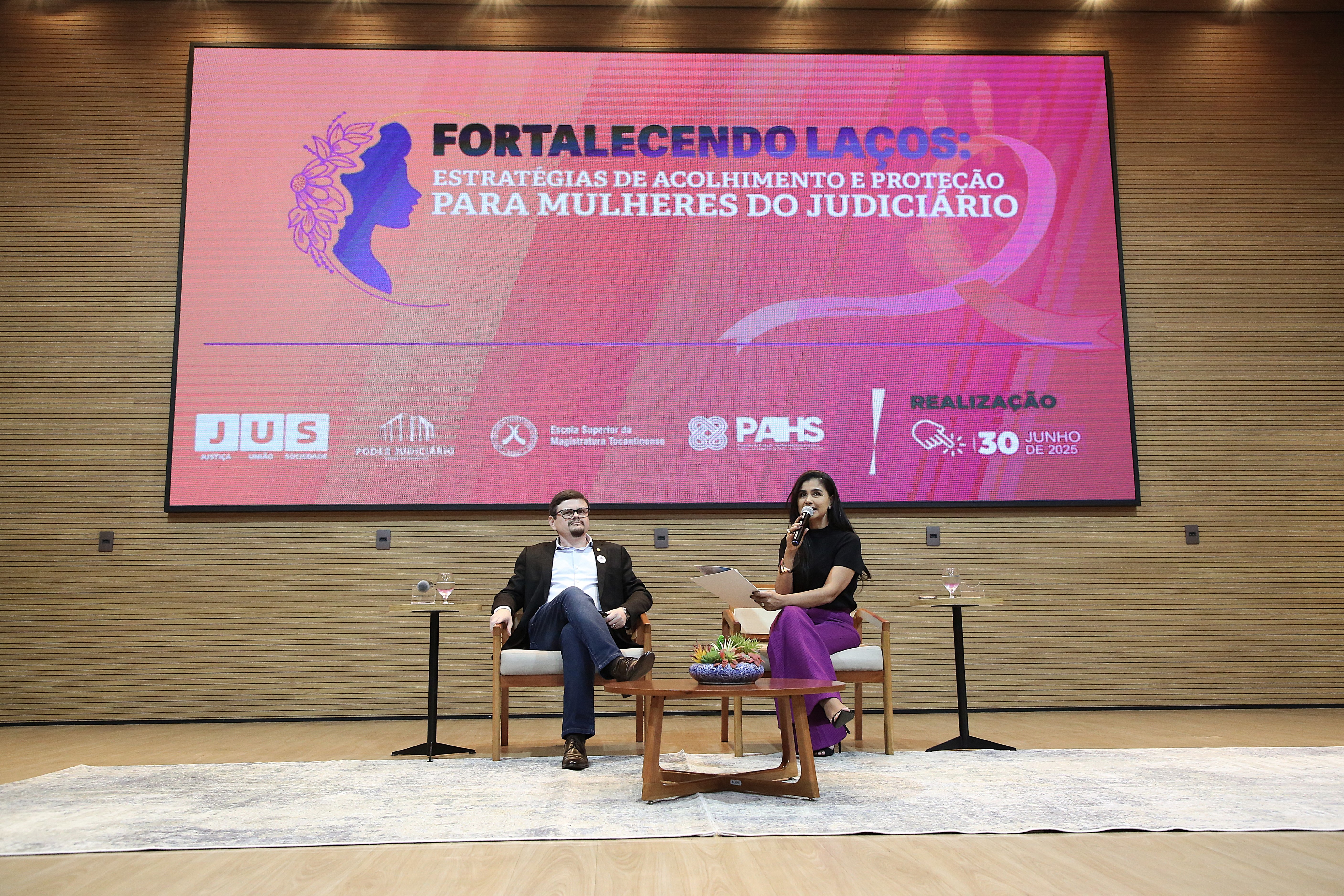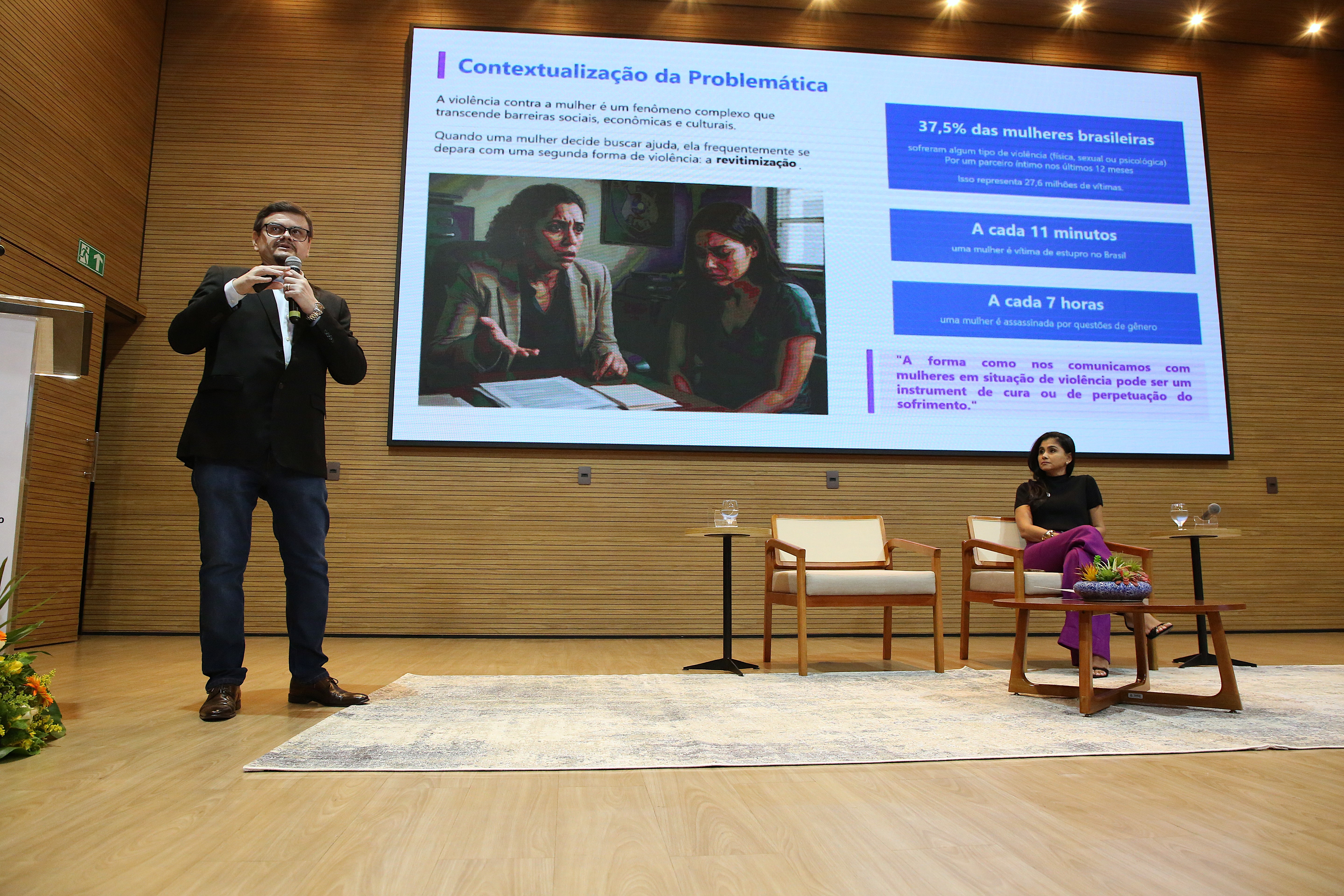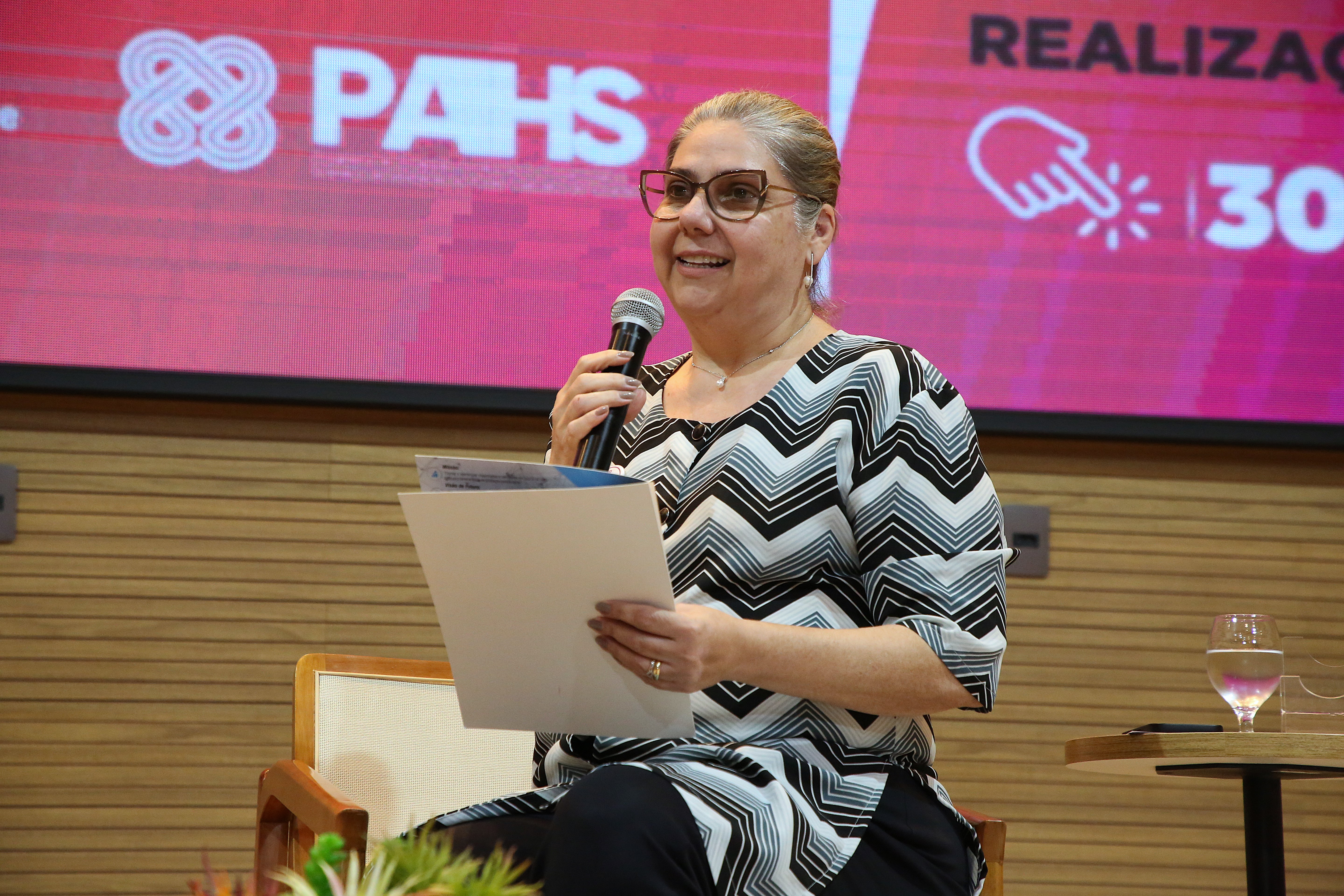With the theme on “What not to say: responsible communication with women in situations of violence”, Psychiatrist Wordney Carvalho Camarço, one of the coordinators of the Psychosocial Reception and Accompaniment Center (Napsi) of the Court of Justice of the State of Tocantins (TJTO), gave a lecture on Monday (June 30th) that reinforced how every sentence said, even in an apparently neutral way, can be decisive between promoting genuine acceptance or causing re-victimization.
The presentation was coordinated by Judge Umbelina Lopes, head of the 2nd Criminal and Penal Execution Court of the District of Porto Nacional, and it was part of the programming for the event on Strengthening Ties - Strategies for Welcoming and Protecting Women in the Judiciary, held in the auditorium of the TJTO. During her speech, the magistrate thanked the Presidency of the TJTO for its commitment to the cause.
“I would like to thank Justice Maysa Vendramini for this important program to strengthen reception and protection strategies for women in the Judiciary, because, as we know, domestic and family violence can be found in all social classes and it also regardless of the profession a woman works in. That's why it's important for us to be here to talk about this issue," she said.

She also shared her professional experience in dealing with cases of domestic violence and stressed that prevention necessarily involves education and raising awareness. She said that she often goes to schools to talk about sexism and prejudice - structural issues that need to be tackled with information. When talking about the importance of ethical and empathetic communication, she emphasized:
“We don't just have the woman as an instrument of evidence. The law ensures that this woman is welcomed, in a private moment, with confidentiality, with empathy, without making a value judgment, with that verticality. The judge presiding over the proceedings needs to be aware that he or she needs to intervene when questions are asked or approaches are made inappropriately”.
In his presentation, Psychiatrist Wordney Camarço stressed that recognizing that violence goes beyond the physical dimension and it can also be psychological, property, moral and sexual and it is fundamental to offer comprehensive support.
Throughout the presentation, examples were given of phrases and approaches that, instead of protecting, transfer the burden of guilt onto the victim and perpetuate the suffering caused by the violence. “The way we put ourselves, depending on what we say, how we behave, ends up compromising us, leading to the failure of the attempt to seek help of that woman,” he said.

Among the examples cited, questions such as: “Why don't you leave him?”, “You must have done something to provoke this” or “At least he didn't kill you” illustrate discursive violence, which can be just as harmful as other forms of aggression.
According to him, "the way we communicate with these women in situations of violence can be an instrument for healing or for perpetuating suffering”.
The speaker also addressed the cycle of violence - tension, explosion and reconciliation - and warned that many aggressors relativize the seriousness of their actions. Explaining the concept of re-victimization, he stressed that qualified listening and the conscious use of words are decisive steps in breaking the cycle of silence.
“The point is not to judge. We can't judge the victim, we shouldn't make conjectures: why it happened, if she contributed, if she didn't contribute. We need to listen and make the victim feel good, welcome and safe," he said.
Finally, he emphasized that the TJTO has a multidisciplinary team made up of a psychiatrist, psychologist, social worker and nurse, dedicated to the care and support of women in situations of violence.
Humanized reception of magistrates and civil servers who are in situations of domestic and family violence, of the judiciary of the state of tocantins
In the second lecture of the event, Judge Flávia Afini Bovo, director of the Palmas Forum, coordinated the panel and reiterated the importance of the initiative. Greeting the participants, she stressed that “we are not alone and knowing this is very important”.

Researcher and Lawyer Cláudia Luna was invited to give the presentation. At the start of her speech, the speaker stressed that reflecting on humanized listening implies revisiting the historical discourses that have shaped perceptions about the place of women and the naturalization of violence.
“Talking about humanized listening goes back to what we've heard about ourselves over the centuries, about violence. And the proposal, when we talk about humanized listening, is so that we can also, from this humanized and qualified listening, think of ways to create this network to strengthen and assist women," she explained.
The lawyer stressed the importance of recognizing that there are not only global challenges, but also local ones. Data presented illustrates this scenario: 33% of women in the state of Tocantins have already suffered some kind of domestic violence, and 24% have experienced aggression in the last twelve months. In addition, the records of Call 180 point to an increase of more than 18% in calls compared to the previous year, surpassing four thousand occurrences in 2024.

“The creation of this support network is essential to ensure the safety and well-being of female civil servers, magistrates and employees," she said.
Throughout the exhibition, Cláudia related the data to the history of the country and mentioned “colonial rape”, a structural violence that still reverberates in social patterns, affecting black, brown, indigenous, lesbian, bisexual, transvestite and transgender women more intensely.
“We are all the fruits of this so-called colonial rape, which even genetic science data states that our DNA, as Brazil, comes from this colonial rape committed by this figure of the “bandeirante” who represents the white, older, wealthy man who had power,” she contextualized.
She stressed that understanding these historical roots helps to understand why sexual violence currently appears as one of the main forms of aggression in the state of Tocantins and why certain bodies continue to be the target of violations legitimized by discriminatory structures.
“Why is it important to connect the past with the present? Because, according to statistical data, what is the most common form of violence here in Tocantins today? Sexual violence. If I don't read the historical facts and make this connection with the statistical data in the present, I can't do what we call semiotics, or study the symbol and meaning of my territory, to understand the dynamics of violence that happen in this place," she said.
Beyond the diagnosis, the speaker called on institutions and their male members to make concrete, shared commitments. "It's essential that men make a commitment to this issue too, because there's no point in us talking and talking about ourselves to ourselves. Because, unlike the absence of men on this issue, it's interesting to say that this atomic bomb of gender and racial violence will only be disarmed when we have men and women allied and aligned in this purpose, there's no way to do this separately," she said.
Cláudia Luna concluded by saying that "the creation and strengthening of this network in the Court of Justice of the State of Tocantins is not only a support measure, but also an investment in the integrity, health and productivity of its professionals, and, by extension, in the own credibility of the institution and effectiveness in promoting Justice for society as a whole”.




